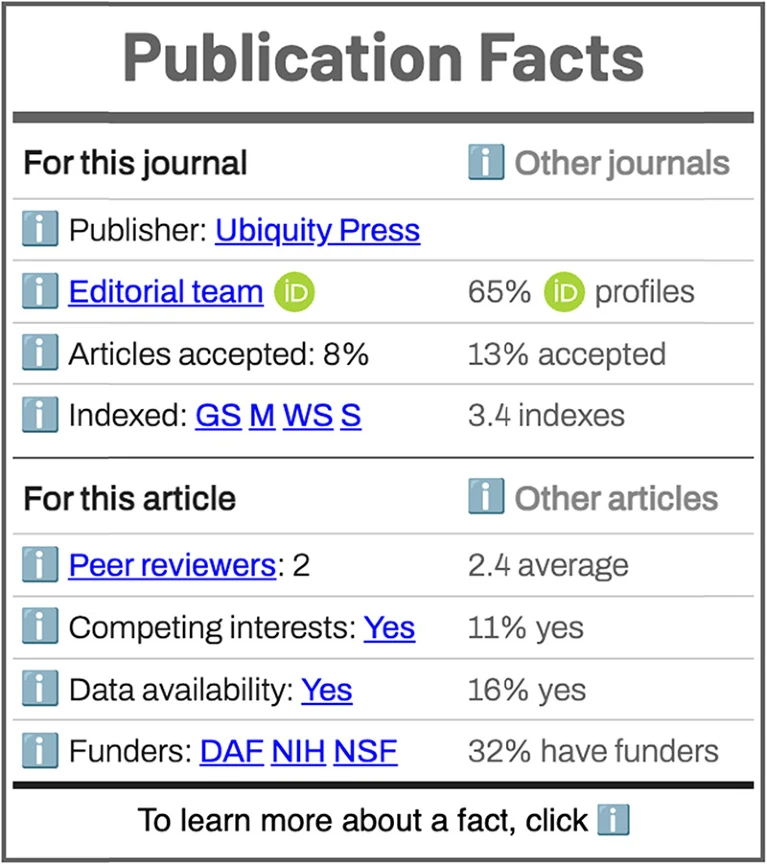
Researchers Want a “Nutrition Label” for Academic-Paper Facts
Researchers Want a “Nutrition Label” for Academic-Paper Facts https://opusproject.eu/wp-content/uploads/2024/04/d41586-024-01135-z_26966010-1024x683.webp 1024 683 Open and Universal Science (OPUS) Project Open and Universal Science (OPUS) Project https://opusproject.eu/wp-content/uploads/2024/04/d41586-024-01135-z_26966010-1024x683.webpResearchers advocate for a ‘nutrition label’ system to convey key information about academic papers, aiming to enhance transparency and inform readers about scholarly standards. Inspired by the familiar nutrition-facts labels found on US food packaging, John Willinsky and his team at the Public Knowledge Project are exploring the development of a standardized label for academic publishing.
The envisioned label would provide a quick overview of publication details, including journal acceptance rates, the number of peer reviewers, publisher and funder names, presence of competing-interests statements, editor lists, indexing information, and data availability. This information aims to assist readers, including researchers, the media, and the public, in evaluating the credibility and relevance of academic articles.
The initiative aims to address concerns about research integrity and accessibility. By streamlining access to essential publication information, the label seeks to empower readers to make informed decisions about citing or reporting on academic papers. Building on the success of the US nutrition-facts label in influencing consumer behavior, the label prototype incorporates feedback from various stakeholders, including researchers, editors, journalists, and educators.

The label’s development includes considerations for standardization, automation, multilingual support, and third-party verification to maintain author and reviewer anonymity. Trials involving journal editors, authors, and science journalists have been conducted to gather feedback and refine the label’s design.
The initiative is initially targeting journals using the Open Journal Systems (OJS) platform, with plans for wider industry adoption. While the publication-facts label is voluntary, its proponents aim to demonstrate its utility and feasibility through pilots and open-source development. By promoting common standards across publishing platforms, the initiative seeks to ensure consistency and comprehensibility in conveying publication information to diverse audiences.
doi: https://doi.org/10.1038/d41586-024-01135-z
- Posted In:
- Open Science News




